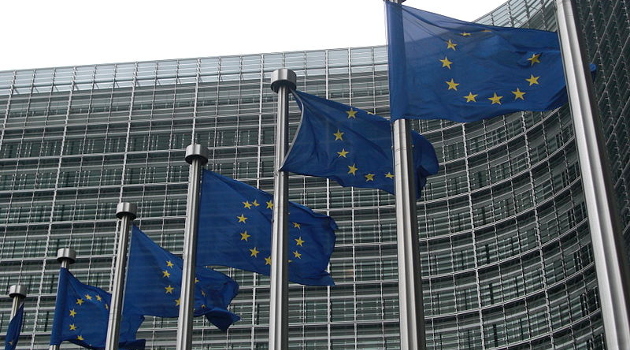I recently explained that the so-called tax scandal of the century really was nothing more than the expectable consequences of bad government regulations and unbearable taxes. While media keeps their spotlight on this non-event, a real European tax scandal is unfolding right before our very eyes.
In an October 23 document, the EU Commission – the executive branch of the European Union – published a document that, explains EUObserver, calls for unionwide tax powers and further crackdown on so-called “tax avoidance”:
The commission, earlier this year, pointed the finger at Belgium, Cyprus, Hungary, Ireland, Luxembourg, Malta, and the Netherlands, where it said sweetheart deals may have enabled multinational companies to cut their tax bills aggressively. The finance and taxation commissioner, Pierre Moscovici, said, at the time, that tax rules in those seven countries “have the potential to undermine fairness and the level playing field in our internal market, and they increase the burden on EU taxpayers”. Some multinational companies have made extensive use of Ireland and other EU countries to shift profits and avoid taxes. With this initiative, the commission aims for faster adoption of proposals.
To facilitate changes to EU tax law, the Commission wants to take away the veto power of individual member states. In its Work Program 2019, the Commission explains that it intends to increase “the use of qualified majority voting and allow more efficient decision-making in key fields of taxation and social policies.”
There is no doubt what this means in the real world: a tax cartel stretching across the European Union, aimed at removing the possibility of tax competition between EU member states. It is only the latest in a long campaign by the EU against low-tax jurisdictions. In 2015, Dan Mitchell exposed a black list, produced by the EU, of what it considered to be “the world’s 30 worst-offending tax havens”.
In January 2018 I followed up on that analysis, reporting in the January 2018 issue of the Cayman Financial Review:
The European Union has created a new kind of blacklist of 17 jurisdictions, and a “watch list” of another 47, branded as “tax havens” or “noncooperative” countries and territories. This list, which has been long in the making, vilifies countries and territories for no other reason than providing residents and investors with low taxes and financial privacy.
I also noted that EU member states were clearly in the EU Commission’s target zone:
Not only is there a substantial difference between Europe’s highest and lowest taxed countries, but the difference is growing. In 2002, taxes as share of GDP were 31 percent higher in the highest-taxed countries than in the lowest-taxed one; in 2017 they were 48 percent higher.
Several countries aspire for the title as Europe’s highest-taxed nation. Norway, Finland and Belgium are trying to prove that when it comes to taxes, the sky is the limit. Ireland and Romania are pulling in the opposite direction, establishing themselves as Europe’s own low-tax jurisdictions. In Romania, a 2005 tax reform substantially reduced income taxes from a progressive tax with a 40-percent top rate to a 16-percent flat rate. Corporate “profit taxes” were cut from 25 percent to 19.
At the time, the Romanians were planning another tax cut.
With its new initiative, the EU is seeking to force feed its high taxes to every country under its boot. The British may not be getting the best deal for their exit from the club, but they are clearly planning to leave in the nick of time. There will be plenty of room for the Brits to thrive from tax competition with the EU. According to Eurostat, in 2016
- Total taxes claimed 38.5 percent of British GDP;
- The average rate for the EU was 44.6 percent.
But their opportunities do not stop there. Once the EU can majority-rule Europe’s tax policy, its goal will be high tax rates and maximized government revenue (regardless of the damage that will inflict on the economy). A total of eleven EU states had a heavier tax burden than the EU average, with Finland, Denmark, France, Sweden and Belgium taxing away more than 50 percent of GDP.
At the other end of the scale, Irish taxes take 27 percent of GDP. In Romania the ratio is 31.9 percent, with 34.4 percent in Lithuania, 35.3 in Bulgaria and 37 in Latvia. The EU Commission’s new strategy, using majority rule to break down national resistance to high taxes, is going to do major damage to the economies of these countries.
With its new, aggressive push against tax competition, the European Union is showing, once again, that centralized government power and unmitigated welfare statism makes for a dangerous combination. The only silver lining is their early declaration of intent. As the EU Commission details its plans to implement this new power grab in 2019, investors who are concerned about the harm of high taxes and economic stagnation, will have time to rearrange their portfolios.
Unfortunately, Europe’s middle class does not have that option. They will be the big losers as the Eurocrats in Brussels get ready for yet another tax attack on the forces of economic freedom and prosperity.
———
Image credit: Sébastien Bertrand | CC BY 2.0.

